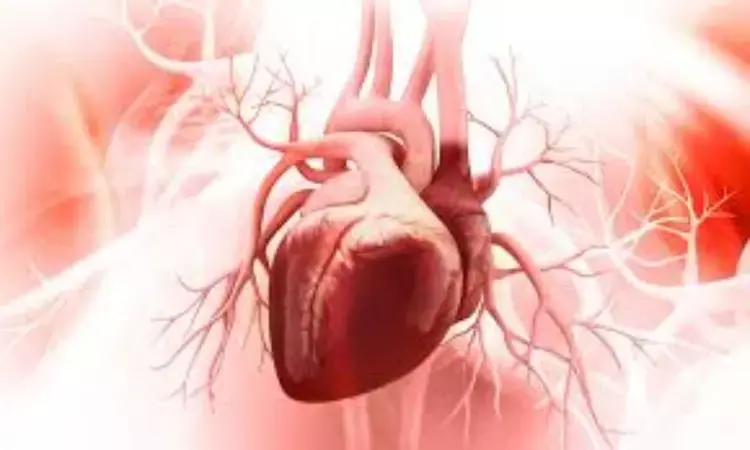- Home
- Medical news & Guidelines
- Anesthesiology
- Cardiology and CTVS
- Critical Care
- Dentistry
- Dermatology
- Diabetes and Endocrinology
- ENT
- Gastroenterology
- Medicine
- Nephrology
- Neurology
- Obstretics-Gynaecology
- Oncology
- Ophthalmology
- Orthopaedics
- Pediatrics-Neonatology
- Psychiatry
- Pulmonology
- Radiology
- Surgery
- Urology
- Laboratory Medicine
- Diet
- Nursing
- Paramedical
- Physiotherapy
- Health news
- Fact Check
- Bone Health Fact Check
- Brain Health Fact Check
- Cancer Related Fact Check
- Child Care Fact Check
- Dental and oral health fact check
- Diabetes and metabolic health fact check
- Diet and Nutrition Fact Check
- Eye and ENT Care Fact Check
- Fitness fact check
- Gut health fact check
- Heart health fact check
- Kidney health fact check
- Medical education fact check
- Men's health fact check
- Respiratory fact check
- Skin and hair care fact check
- Vaccine and Immunization fact check
- Women's health fact check
- AYUSH
- State News
- Andaman and Nicobar Islands
- Andhra Pradesh
- Arunachal Pradesh
- Assam
- Bihar
- Chandigarh
- Chattisgarh
- Dadra and Nagar Haveli
- Daman and Diu
- Delhi
- Goa
- Gujarat
- Haryana
- Himachal Pradesh
- Jammu & Kashmir
- Jharkhand
- Karnataka
- Kerala
- Ladakh
- Lakshadweep
- Madhya Pradesh
- Maharashtra
- Manipur
- Meghalaya
- Mizoram
- Nagaland
- Odisha
- Puducherry
- Punjab
- Rajasthan
- Sikkim
- Tamil Nadu
- Telangana
- Tripura
- Uttar Pradesh
- Uttrakhand
- West Bengal
- Medical Education
- Industry
STEMI patients with cytomegalovirus have reduced left ventricular function: AHA

A new study published in the Journal of American Heart Association revealed that patients with positive cytomegalovirus (CMV) titers expressed poorer left ventricular ejection fractions (LVEF) at 1 week and 3 months, as well as worse ST-segment resolution following ST-segment-elevation myocardial infarction (STEMI) when compared to their CMV-negative peers.
Over 80% of people worldwide and 60% of adults in more industrialized nations are infected with the human cytomegalovirus, a herpes virus. The virus is not eradicated after the first infection, which is often asymptomatic in immunocompetent hosts. This is followed by a lifetime of latent infection with sporadic reactivations. It is uncertain if CMV affects the course of events following STEMI. Thus, this study was set to examine the relationship between latent CMV infection and outcomes following STEMI.
In this investigation, blood samples from 354 STEMI patients who were enrolled in T-TIME (A Trial of Low-Dose Adjunctive Alteplase During Primary PCI) were cryopreserved. Participants received rapid percutaneous coronary intervention, serial cardiovascular magnetic resonance imaging at 2–7 days and 3 months after STMI, and the EuroQol 5-Dimension visual analog scale to measure health-related quality of life. Each patient's cryopreserved baseline samples were used to assess the cytomegalovirus Ig (immunoglobulin) G titer. Age and other potential confounders were taken into account while adjusting the results.
Almost, 175 patients (49.4%) were cytomegalovirus IgG titer‐negative, 89 (25.1%) were low‐positive, and 90 (25.4%) were high‐positive. The patients who were cytomegalovirus‐positive were older (62.5 versus 58.7 years of age) and more likely to be non‐White (6.7% versus 2.3%). Myocardial reperfusion, measured by ST‐segment resolution, was less successful in patients who were cytomegalovirus‐positive (38.7% resolution versus 48.4%; adjusted P=0.032).
Cytomegalovirus-positive individuals had a reduced left ventricular ejection fraction during the first week (42.6% compared 45.3%; adjusted P=0.006) and three months (47.8% against 49.7%; adjusted P=0.033). The increase in health-related quality of life was poorer for cytomegalovirus-positive individuals during a 3-month period (change on EuroQol 5-Dimension visual analog scale: +3.38 versus +9.93; adjusted P<0.001).
Overall, a slightly reduced LVEF in the first week and three months following STEMI is linked to latent CMV infection, which is frequent in patients with STEMI. Additionally, cytomegalovirus immune status is linked to reduced improvement in self-rated quality of life over a 3-month period and inadequate reperfusion with percutaneous coronary intervention.
Source:
Spray, L., McIntosh, A., McCartney, P. J., Macfarlane, P. W., Maznyczka, A., Welsh, P., Berry, C., & Spyridopoulos, I. (2025). Latent Cytomegalovirus infection is associated with impaired left ventricular function after ST-segment-elevation myocardial infarction. Journal of the American Heart Association, 14(16),. https://doi.org/10.1161/JAHA.124.040584
Neuroscience Masters graduate
Jacinthlyn Sylvia, a Neuroscience Master's graduate from Chennai has worked extensively in deciphering the neurobiology of cognition and motor control in aging. She also has spread-out exposure to Neurosurgery from her Bachelor’s. She is currently involved in active Neuro-Oncology research. She is an upcoming neuroscientist with a fiery passion for writing. Her news cover at Medical Dialogues feature recent discoveries and updates from the healthcare and biomedical research fields. She can be reached at editorial@medicaldialogues.in
Dr Kamal Kant Kohli-MBBS, DTCD- a chest specialist with more than 30 years of practice and a flair for writing clinical articles, Dr Kamal Kant Kohli joined Medical Dialogues as a Chief Editor of Medical News. Besides writing articles, as an editor, he proofreads and verifies all the medical content published on Medical Dialogues including those coming from journals, studies,medical conferences,guidelines etc. Email: drkohli@medicaldialogues.in. Contact no. 011-43720751


